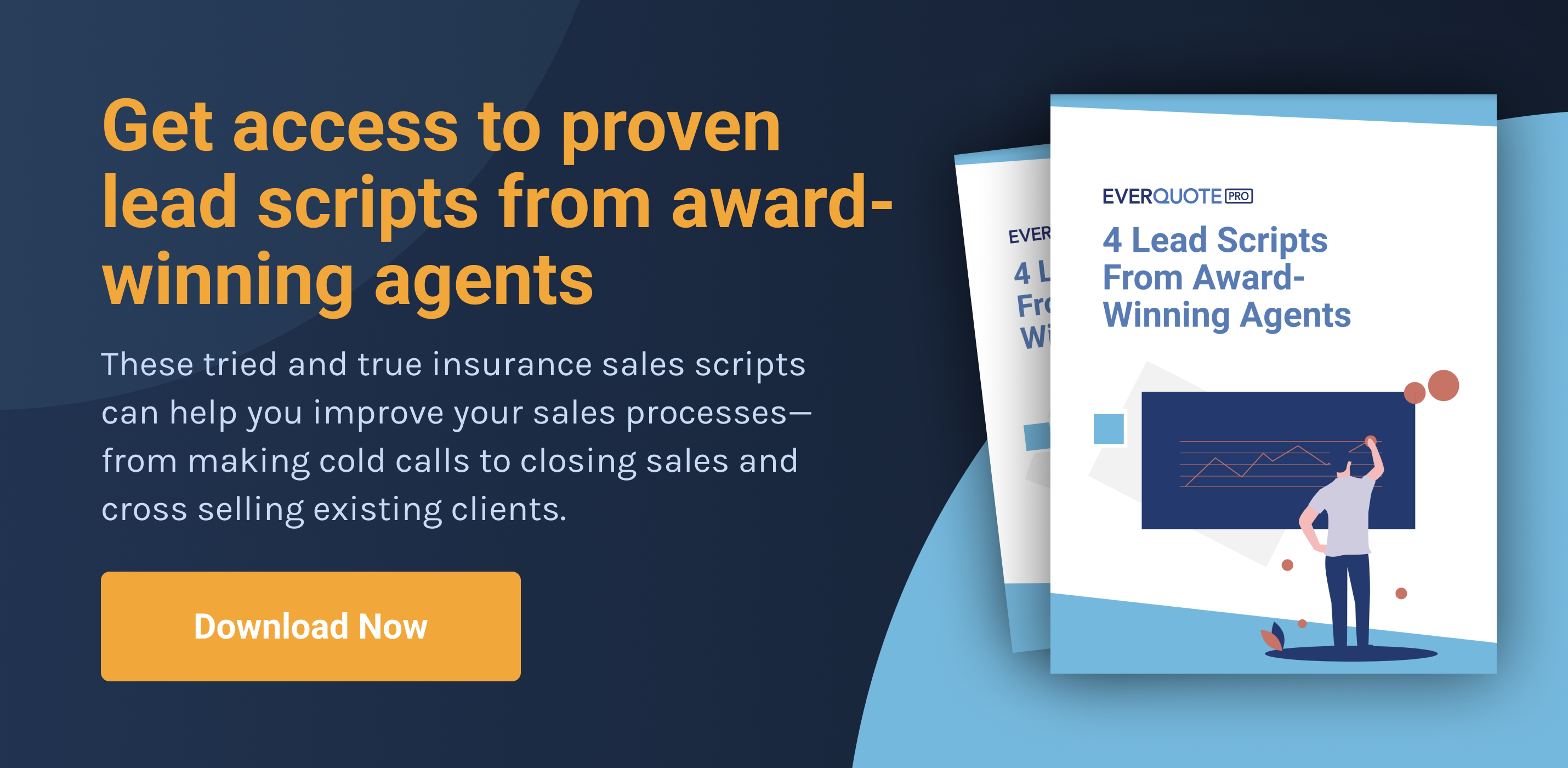- Home»
- EverQuote Pro Blog»
- 5 Tips For Selling Insurance To Millennials

You can think of Millennials almost as the “middle child” because they tend to be looked over by other generations. Baby Boomers consider them youngsters, while Gen Z looks at them as over the hill. In reality, this “in-between” generation spans a sizeable 15 years (1981 to 1996)—for 2022, that means Millennials may be as young as 26 and as old as 41.
Insurance agents often consider this fact in their sales process, and wind up making some limiting assumptions. Keep reading to learn why these assumptions are inaccurate, and to get a few tips on selling to Millennials the right way.
Dispelling The Generational Myth Of Selling To Millennials
Someone who is 26 and someone who is 41 are typically in two vastly different life stages and have unique concerns—not to mention there are often differences in their attitudes toward technology. Understanding these distinctions will help you realize that, as an agent, you can’t take a one-size-fits-all approach to selling insurance to Millennials.
“All Millennials are not the same,” says insurance agent Danielle Waller. As a Millennial herself, she says that one thing you must be mindful of with her generation is avoiding broad assumptions about who they are and what they like.
“It’s true that many Millennials are quite familiar with technology and often prefer DIY options,” says Waller. “However, there are just as many of us who prefer to pick up a phone and talk to someone directly. We may want a quick, clear answer instead of researching on our own for an hour and potentially still being in the dark about a subject we’re unfamiliar with—like insurance, for example.”
This generational duality means it’s essential for insurance agents to be flexible. You must be willing to meet in person or set up a Zoom conference call; send a link that explains what they need to know or call and walk them through it; and send a lengthy email or a concise text.
However, “Even with older members of the generation, you’re probably better off sending a text for most things unless the person asks for an in-depth explanation or requests a call,” Waller explains.
So what does it take to sell them insurance? Keep reading to see Waller’s recommendations.
Insurance Agents: 5 Tips For Selling To Millennials
1. Focus on connecting and building trust.
Millennials like low-priced products, but who doesn’t? Waller says price alone is not a sufficient draw for most members of this generation. “What does attract—and retain—them is the trust they gain in you as an agent who’s helped them find the right insurance products for their life as it changes over time.”
2. Ask for their communication preferences.
As indicated above, some Millennials want to talk to agents so they can pose questions and get in-depth answers, while other Millennials would rather eat dirt than have to pick up a phone.
“A good agent will learn to ask customers early on about their communication preferences, so they have the best chance at receiving a response and closing the sale,” Waller explains. “Otherwise, they may never hear back from the customer, as it’s unlikely the customer will share their preference if not prompted to do so.”
3. Educate them.
Waller says it’s important to educate Millennial prospects on insurance products, regardless of how you deliver the information. The medium will dictate how much information you share at one time. For example, trying to work a full-blown insurance explanation into a text message is likely to be ignored, but you can share important product highlights to spur a conversation on until a prospect either makes a decision or is ready to learn more via phone, email, or a website link.
“Don’t just find out what they’re in the market for—really probe for their needs,” says Waller. “Then make relevant recommendations that are clearly tied to your understanding of their current life situation.”
4. Be responsive.
Millennials just want to be heard, and Waller says you’d be surprised at the impact responsiveness has on making a sale.
“Imagine a prospect who’s ready to buy an insurance product and is communicating with three different insurance agents,” says Waller. “One has responded back to texts throughout the day, while the other two said they’d be in touch via email within 24 hours. Who do you think is going to get the sale?”
5. Make products relatable.
For Millennials, the value of some products, such as life insurance, is not immediately apparent. In these cases, Waller says it’s helpful to paint a picture of the potential consequences of not having it.
Consider a prospect who has a stay-at-home spouse and two kids. Waller shares a few questions you may ask to start the conversation and help the prospect grasp the benefit of life insurance:
- If you didn’t make it home tonight, what would happen to your family?
- Will they be able to afford the house?
- Will your spouse have to go back to work? Will the kids need to change schools?
Selling insurance to Millennials doesn’t have to be any more challenging than selling to other generations. Just keep the above tips in mind when interacting with them and you’ll increase your odds of closing the sale.
Unlock predictable growth with EverQuote.
Our representatives are standing by to help you succeed.
Call 844-707-8800
Weekdays, 9AM-5PM (ET)
Call 844-707-8800
Weekdays, 9AM-5PM (ET)
Accelerate your growth.
Complete the form below or just call 844-707-8800 to learn how we can help you achieve your goals.
By clicking "Get Started", I consent by electronic signature to being contacted by EverQuote, including by automatic telephone dialing and/or an artificial or prerecorded voice (including SMS and MMS - charges may apply), regarding EverQuote for Agents, even if my phone number is listed on a Do Not Call Registry. I also understand that my agreement to be contacted is not a condition of purchasing any goods or services, and that I may call (844) 707-8800 to speak with someone about EverQuote for Agents.
By clicking "Get Started", I affirm that I have read and agree to this website’s Privacy Policy and Terms of Use, including the arbitration provision and the E-SIGN Consent.
* Mandatory fields
 Product Overview
Product Overview Blog
Blog FAQs
FAQs Webinars
Webinars eBooks & Resources
eBooks & Resources